There is no better way to exercise the imagination than the study of the law”. The purpose of legal education is not only to impart legal knowledge. Law, as we know it today, is an extension of principles of dharma or nayay in the ancient period. Legal education is the first step towards laying the foundation of knowledge and critical thinking. School of Law, CT University is not just adding up numbers to available options under the law school list. We strive to provide our students with practical knowledge as much as possible along with the basics of law and to hone the legal acumen of each student. The objective of the School of Law, CTU is to train young minds with strong fundamentals, sound legal knowledge and skill–set to deal, answer and fight for just and legal causes. School of Law strives to produce competent law graduates who can be instrumental in delivering goods as Advocates, Judicial officers, Legal advisors and Law officers/Executives not only in the legal arena but in the corporate and business world as well. Since its inception, the USOL ensures that its curriculum encompasses all paradigm shifts in legal as well as legal studies.
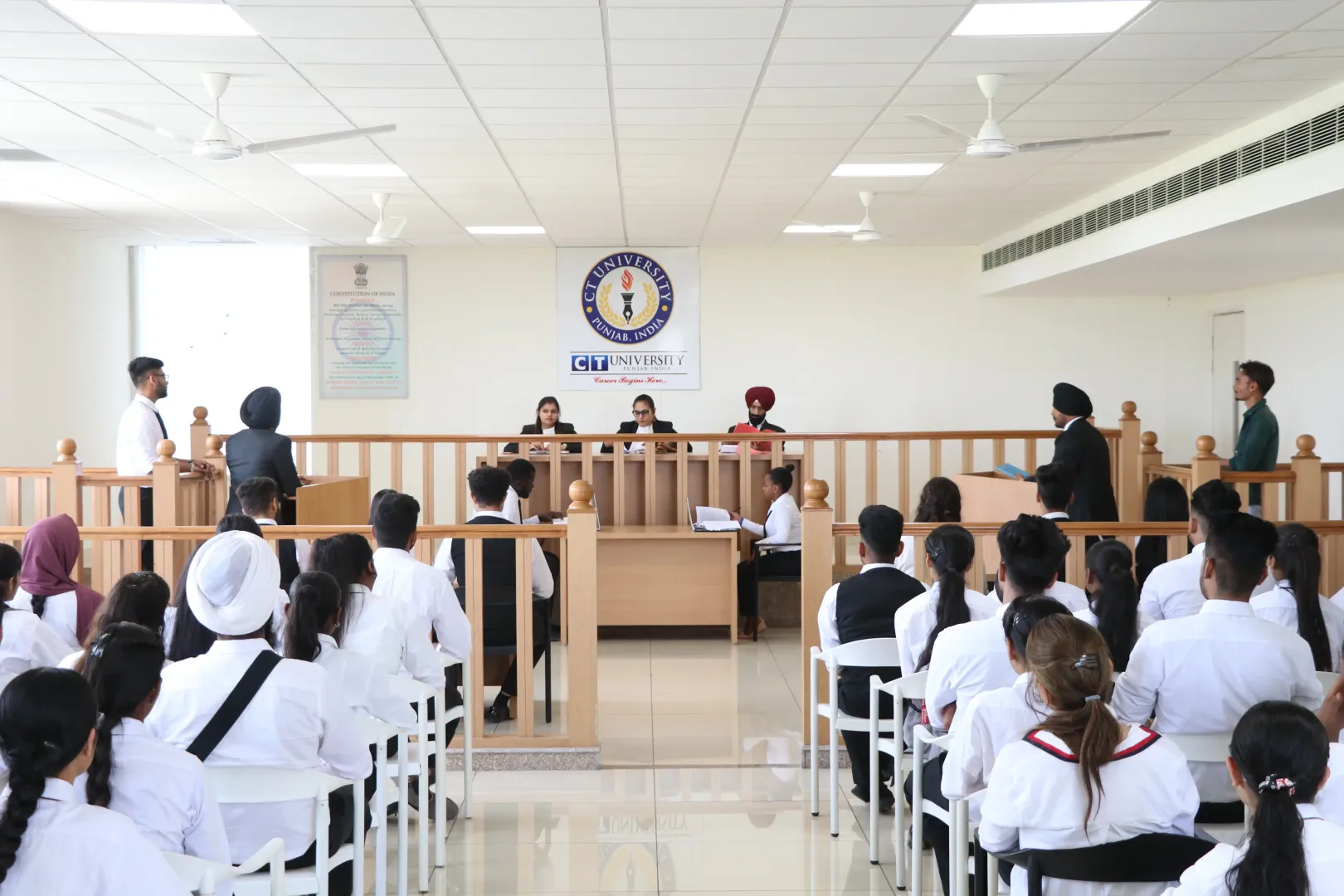
1. To inculcate conceptual as well as practical skills in students and to enable them to meet the complexities of legal and inter-disciplinary issues. 2. To provide the best legal educational experience by engaging eminent legal fraternity outside the traditional borders of the university campus. 3. To Establish State-of-the-art facilities for world-class legal education and research and make students industry-ready, such that they are grounded with legal knowledge and equipped with skills required for the legal profession.

School of Law, CT University envisions producing highly skilled law professionals dedicated to advancing justice and social welfare and producing competent law graduates who can be instrumental in delivering goods as Advocates, Judicial officers, Legal advisors and Law officers/Executives not only in the legal arena but in the corporate and business world as well.

Departments
Our whole educational system, from the elementary schools to the universities, is increasingly turning out people who have never heard enough conflicting arguments to develop the skills and discipline required to produce a coherent analysis, based on logic and evidence. The implications of having so many people so incapable of confronting opposing arguments with anything besides ad hominem responses reach far.
₹66 LPA Highest Salary Package
offers scholarships upto 32 crores
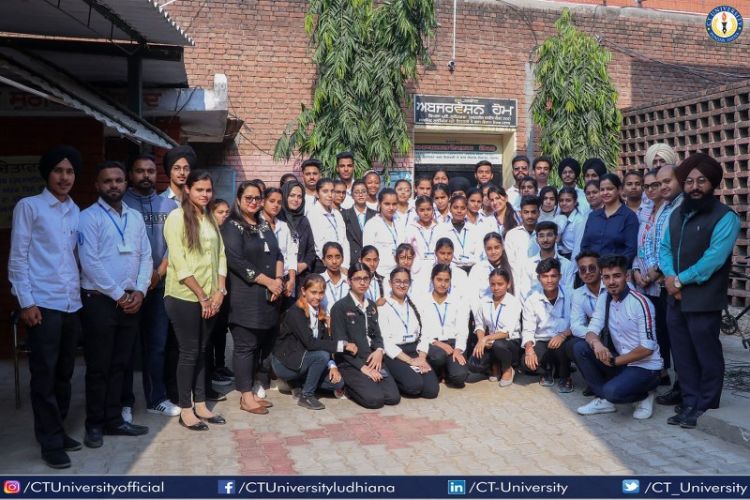
VISIT TO OBSERVATION HOME, LUDHIANA lorem
On the occasion of National Education Day, SOL, CT University students visited Observation Home, Ludhiana and distributed books to undertrial juveniles. National Law day was celebrated to pay tribute...
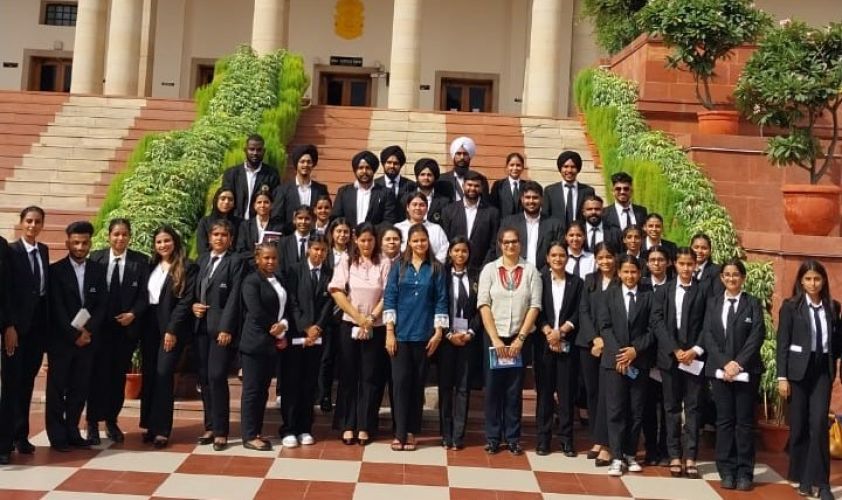
CT University School of Law Students Gain Insight into the Heart of Indian Democracy at the Hon’ble Supreme Court lorem
CT University’s School of Law embarked on a transformative journey to the heart of Indian democracy, the Hon’ble Supreme Court of India. This prestigious visit was meticulously organized to provide st...
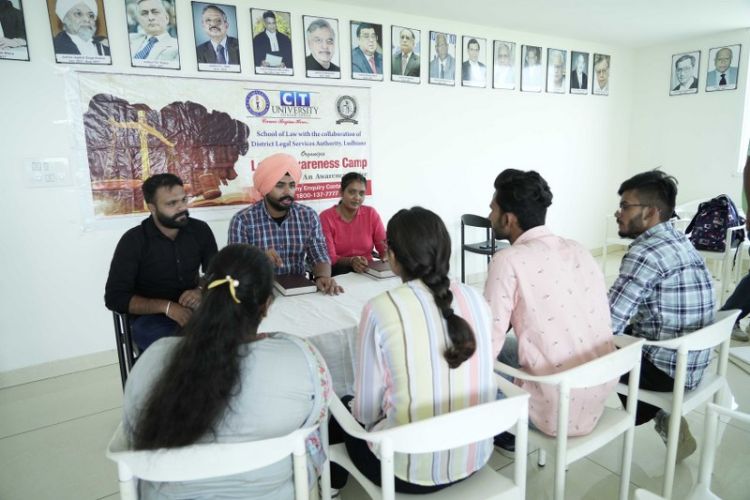
INTERNATIONAL LITERACY DAY lorem
School of Law, CT University, Ludhiana celebrated “INTERNATIONAL LITERACY DAY”Awareness about legal rights was also deliveredLudhiana, September 2022 : CT University, Ludhiana, Punjab organized the di...
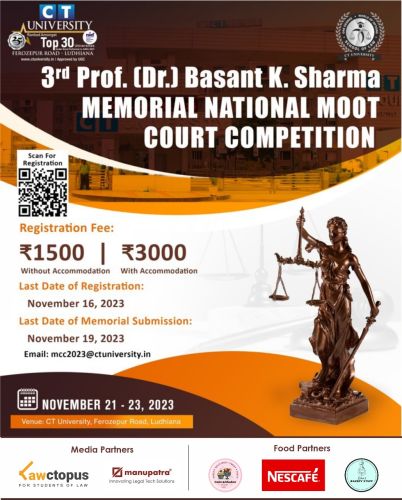
3rd Prof. (Dr.) Basant K. Sharma Memorial National Moot Court Competition lorem
Moot Court Competition is organized in the memory of (Late) Prof. (Dr.) Basant K. Sharma who served as an academician with Department of Laws, Panjab University, Chandigarh for more than 30 years. His...
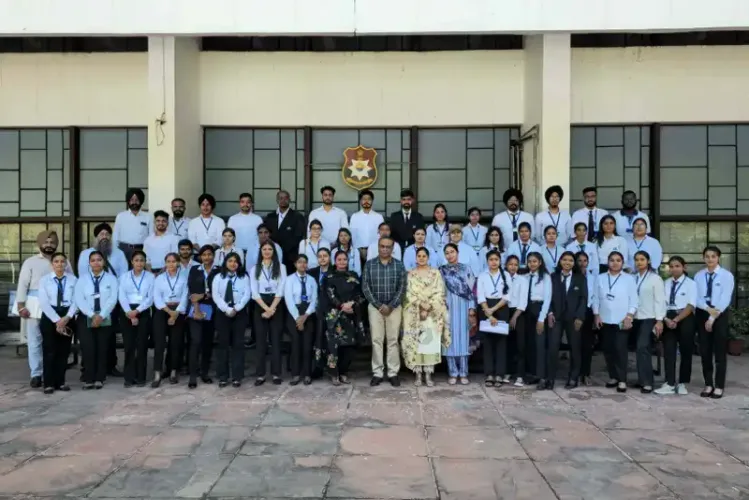
School of Law Students Enhance Knowledge at Punjab Police Academy lorem
School of Law, CT University visit to Punjab Police Academy in Phillaur. The visit was aimed at providing them with practical insights into the field of forensic science.The Punjab Police Academy hous...

Dr. Simranjeet Kaur Gill of CT University Selected as Subject Expert by Ministry of Education, Government of India lorem
CT University proudly announces that Dr. Simranjeet Kaur Gill, Principal of the School of Law, has been chosen as a subject expert by the Ministry of Education, Government of India. Dr. Gill will play...
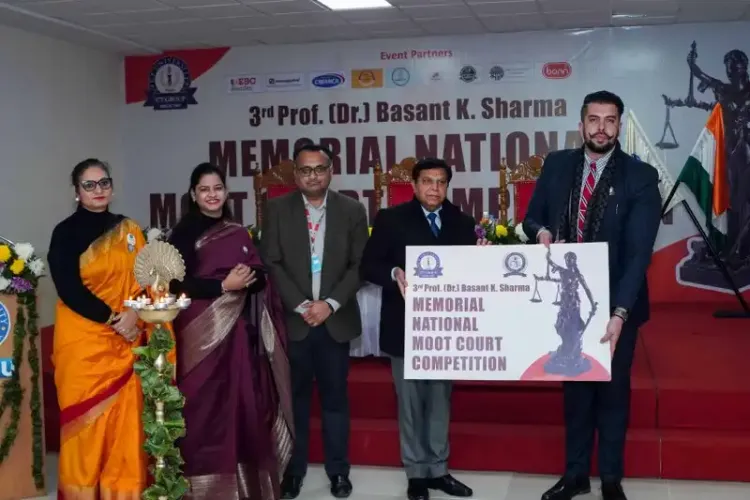
School of Law, CT University Successfully Concludes 3rd (Prof.) (Dr.) B.K Sharma National Moot Court Competition lorem
School of Law, CT University has successfully concluded its prestigious 3rd (Prof.) (Dr.) B.K Sharma National Moot Court Competition, held from January 23rd to January 25th at its campus. The event wi...
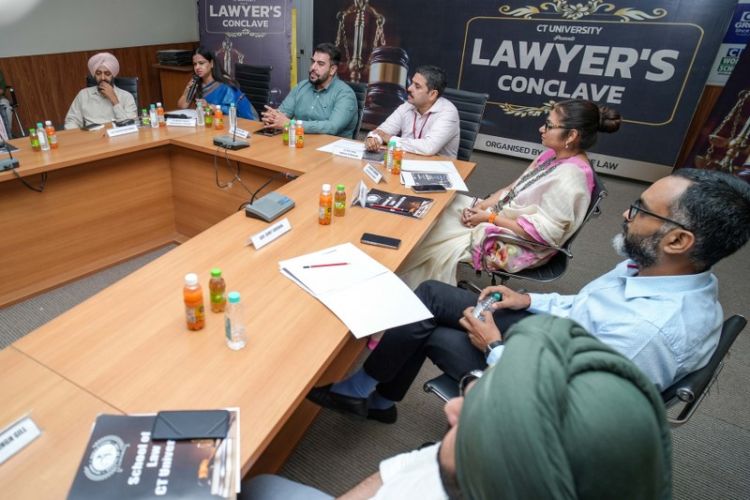
The Lawyers’ Conclave: A Vision for Excellence at the School of Law, CT University lorem
The School of Law at CT University recently hosted a Lawyers’ Conclave, bringing together esteemed legal professionals to deliberate on strategies for elevating the School of Law to the pinnacle of le...
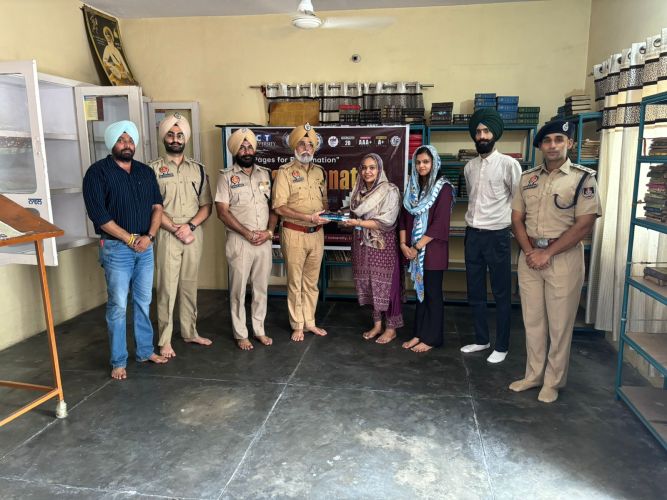
School of Law, CT University, Ludhiana, Organizes Book Donation Drive to Central Jail Ludhiana lorem
The School of Law at CT University, Ludhiana, organized a significant book donation drive as part of the 'Page for Prisoners' initiative, aimed at enhancing educational opportunities for inmates at Ce...
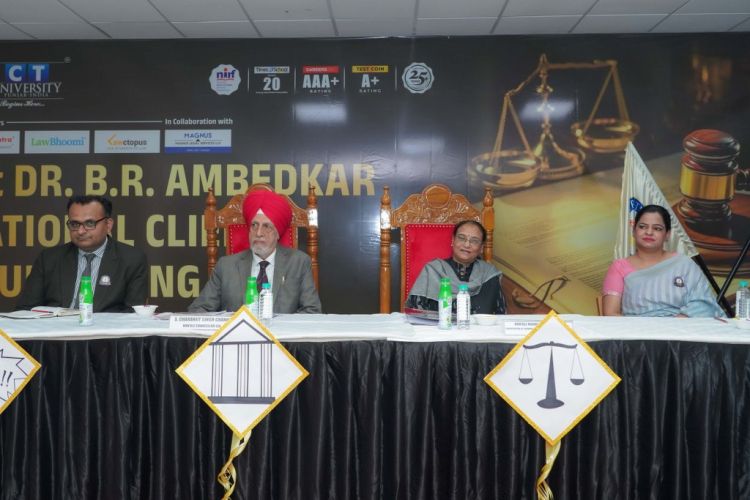
CT University Organizes 1st B.R Ambedkar Client Counseling Competition lorem
CT University's School of Law successfully hosted the 1st B.R. Ambedkar Client Counseling Competition. This prestigious event brought together 24 teams comprising 48 talented law students from across...
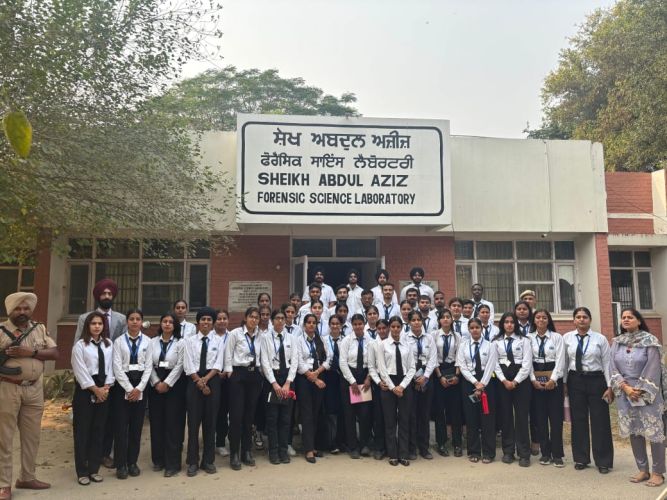
CT University Students Gain Firsthand Experience at Punjab Police Academy lorem
On 06 November 2024, a group of students from CT University had the unique opportunity to visit the esteemed Punjab Police Academy in Phillaur. The visit was part of an educational initiative to provi...
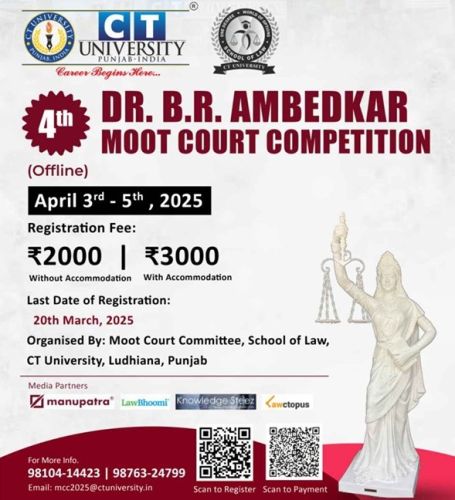
CT University, School of Law proudly presents the '4th Dr. B.R. Ambedkar Moot Court Competition 2025 lorem
CT University, School of Law proudly presents the '4th Dr. B.R. Ambedkar Moot Court Competition 2025', a prestigious Pan-India event set to take place on April 3rd, 4th, and 5th, 2025. This esteemed c...
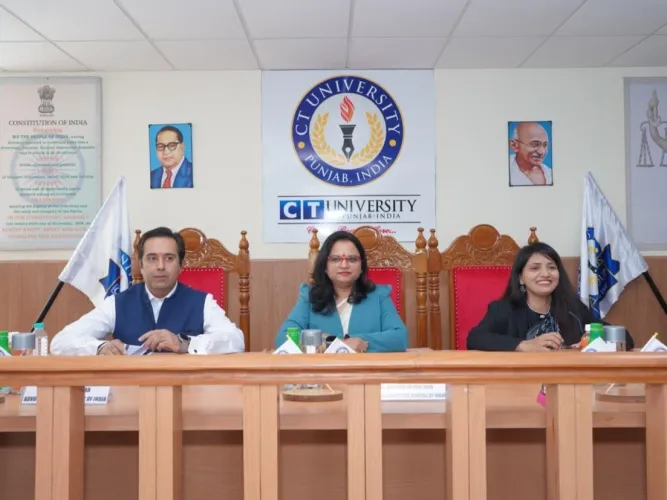
CT University's 4th Dr. B.R. Ambedkar National Moot Court Competition Concludes with Great Success lorem
Young Legal Minds Showcase Exceptional Talent and Advocacy SkillsThe 4th Dr. B.R. Ambedkar National Moot Court Competition at CT University, Ludhiana, has successfully concluded, showcasing exceptiona...
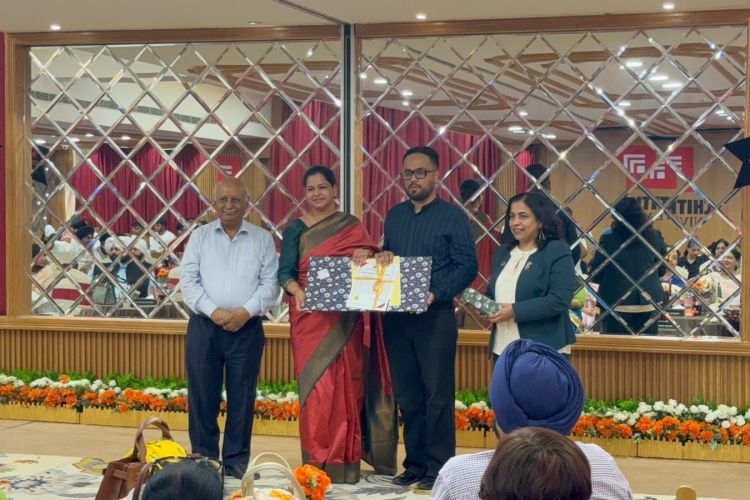
CT University Shines Nationally: Dean Academics Dr. Simranjeet Kaur Gill Wins “Best Principal Award” lorem
Recognised Among 430 Nominees Across Punjab for Excellence in Sustainability and Education InnovationAward Presented by National EduTrust of India at Prestigious Ceremony Hosted by Chitkara University...